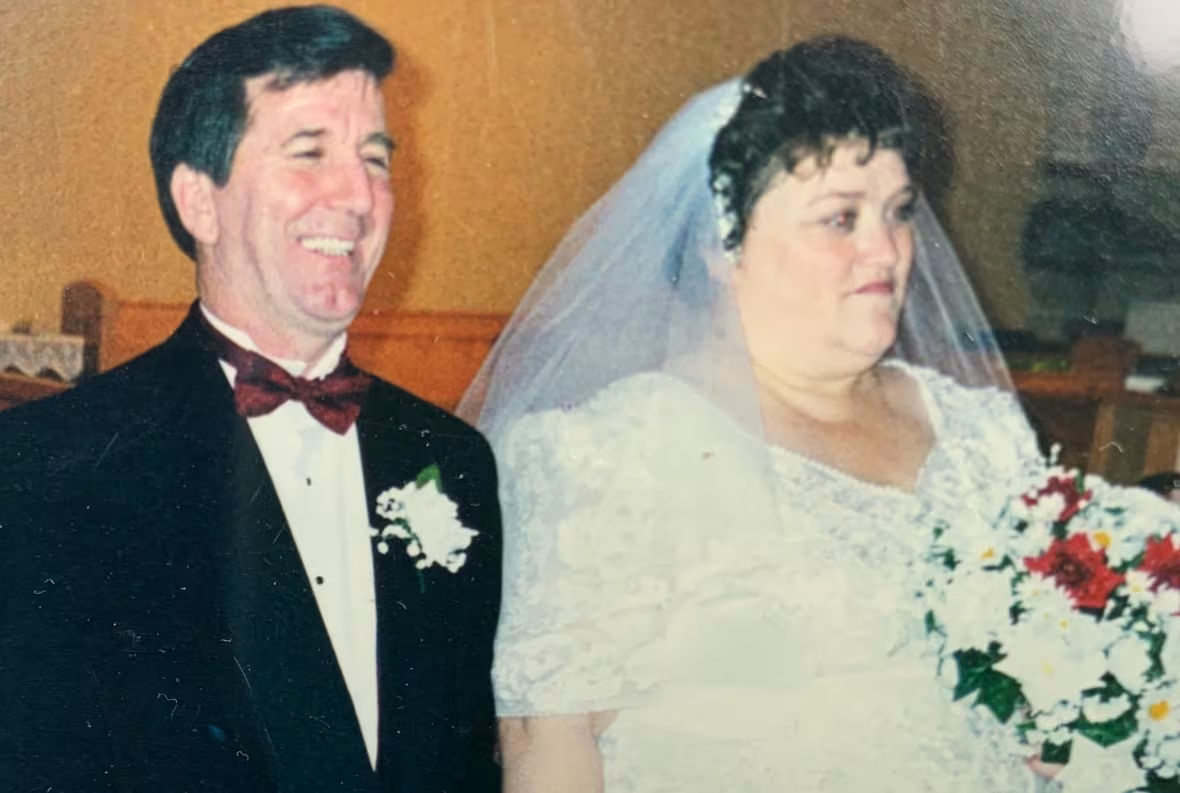COVID-19 infected this C.B.S. couple. Only one of them would survive
'I miss her completely,' says Doug Taylor, left alone after his wife, Debbie, died in April

Doug Taylor is still in disbelief that his wife, Debbie, was taken from him by a disease that originated in a faraway country. Her sudden death, he says, was a tragedy that will be with him the rest of his life.
"Knowing she'll never come back again — I don't think I'll ever get past that," he told CBC News.
COVID-19, first reported in December in China, took only three months to reach his world on Fowlers Road in Conception Bay South and turn it upside down.
"I miss her love," he says. "I miss her friendship. I miss her completely."

Married for more than 20 years, both Taylors got sick around the middle of March, before the declaration of the public health emergency, when businesses were closed and many people were told to go home and stay home.
Their severe symptoms — coughing, aches, pain, vomiting and diarrhea — didn't go away, and by the end of March both tested positive for COVID-19.
"It was the worst sickness I've ever experienced," he said. "I never want to go through it again"
Doug Taylor, 68, watched as 61-year-old Debbie was taken from their home on a stretcher on April 1.
"I lifted up her head and I kissed her, and I said, 'Debbie, I'll always love you, no matter what.'"
That was the last time he saw her.

Still gravely ill himself, Taylor had to stay home and self-isolate; going to the hospital with his wife was out of the question.
The call
Five days later, at seven in the morning, his phone rang.
"The doctor said, 'Mr. Taylor, are you sat down?' And I knew then," he said.
Debbie Taylor was gone.

"I dropped the phone. I screeched. I done it all," said Taylor, his anguish made worse because he couldn't comfort Debbie in her final moments.
"Not being able to be with her in the hospital, she had to die alone — not alone, but with strangers. That was hard. And the fact that she wasn't coming back, that was the worst of all," he said.
From bad to worse
Taylor spent 21 days alone in his apartment, grieving. At one point, he was unable to eat for seven days, he said, and the lack of human contact made everything more difficult.
"My family called me, but it's not the same as having someone there. I couldn't get a hug," he said. "I couldn't embrace anyone. At the time of death, you need that kind of thing"
The pandemic lockdown also meant he was prevented from giving her the funeral he wanted.
"I couldn't take her and have a church service and have family there," he said. "I was in a terrible way, didn't know if I was coming or going."
Kindness from the darkness
But Taylor said the generosity people showed him lifted his spirits and gave him hope when he needed it most.
"People were so good to me. It was unreal," he said. "Food coming from everywhere. People dropped off money in envelopes. There was people I don't even know who called me with their condolences."

Now, Taylor said, his recovery plan is simple: keep busy tending to and selling flowers. He also sells firewood.
"I'm on the go and I have to keep moving because I'm afraid if I stop, I'll lose it," he said.
It's a mystery to him why COVID-19 took Debbie but spared him.
"I might never know why. God got a thing for me to do here. I don't know what it is yet, he's telling me to wait."
Another mystery
To this day, he still doesn't know where he and his wife came in contact with the virus. In March, he said, they were doing normal things: going to medical appointments, shopping, getting taxis.
Not knowing bothers him, he said — and it bothers him no one else has tried to figure it out either.
"I wasn't approached after my wife died to see where we picked up the virus. I'm absolutely disgusted," he said. "No one called me."

He's also upset the public health lockdown didn't come sooner, and said the provincial government should have taken action long before it did. If it had, he says, his wife might still be alive.
And now that restrictions are easing in Newfoundland and Labrador, Taylor has a warning for people who think it's OK to let their guard down.
"Do not do it," he said.
"It's a terrible disease. I don't know if I'm the lucky one. I believe God delivered me but some are not going to be so lucky."

